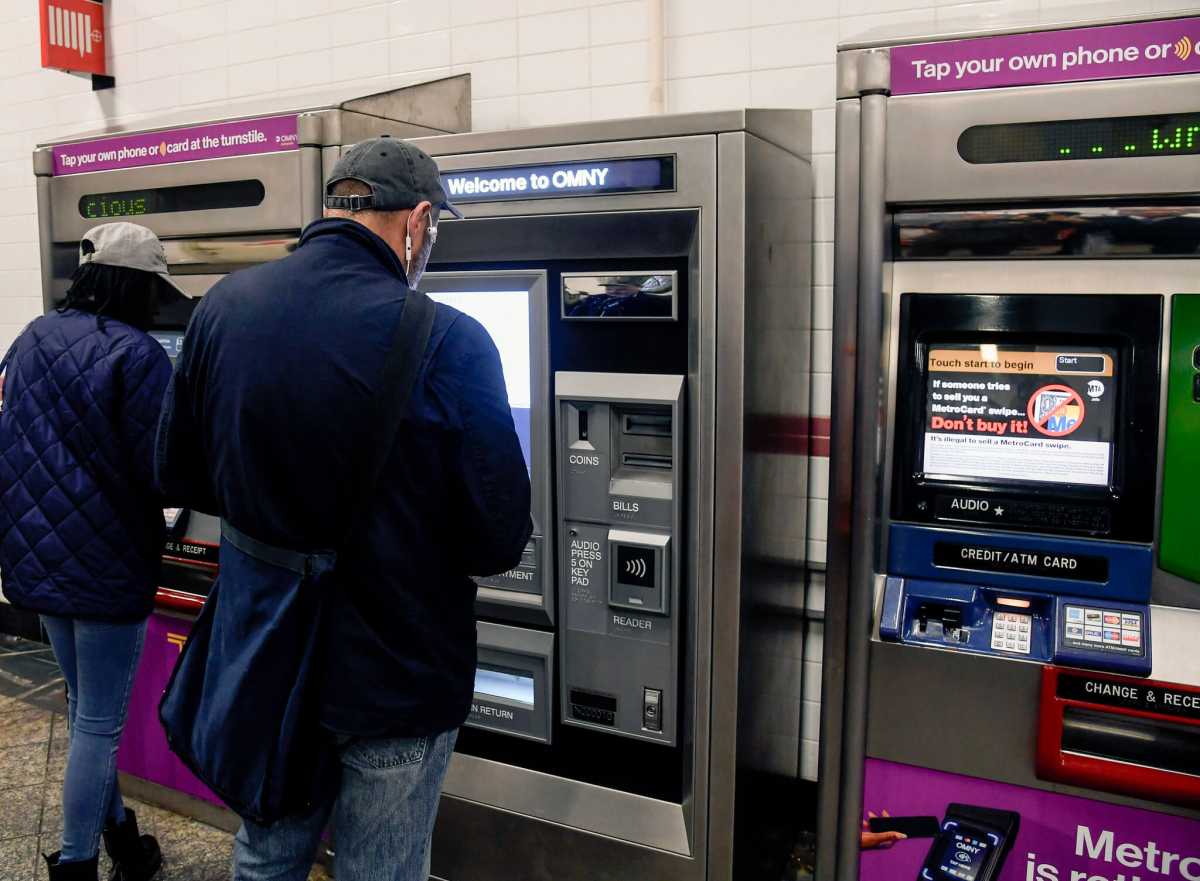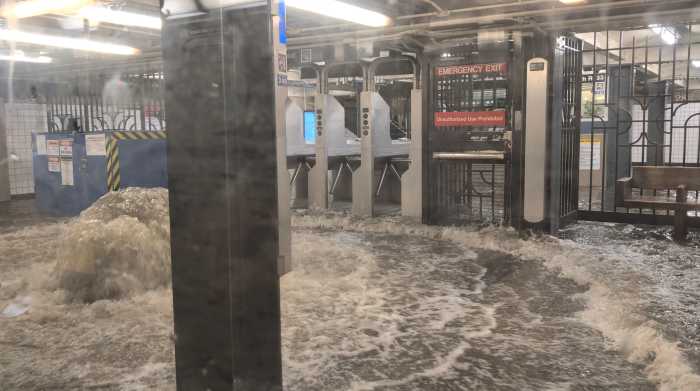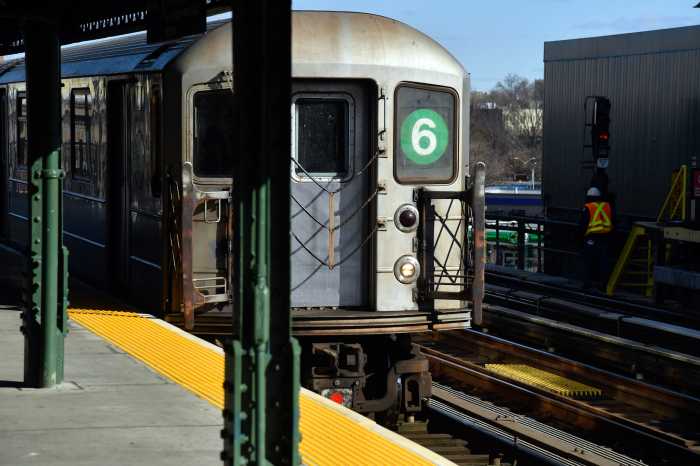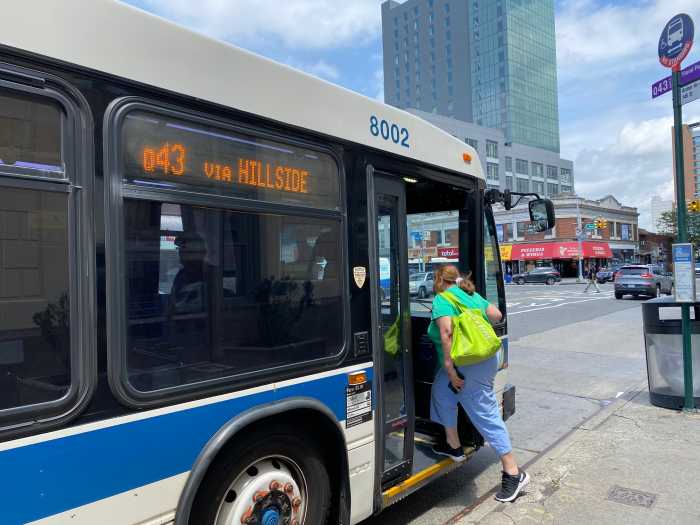Many New York City public transit users experience problems with OMNY as the MTA continues to phase out MetroCards in favor of the new tap-and-go payment system, according to a survey released last week.
The Permanent Citizens Advisory Council to the MTA’s (PCAC) July 10 report on improving OMNY, found that nearly 75% of riders surveyed encountered some type of issue with the OMNY tap-and-go system. Moreover, 42% of that number had problems with OMNY readers not accepting their tap.
PCAC surveyed 392 OMNY users via social media, email, community boards and through advocacy groups between June 2 and July 7 to get feedback on the system.
Other issues among OMNY-using commuters include late charges and many who said they have encountered “extra charges” on their accounts.
Overall, however, survey respondents were “generally positive” about the switch to OMNY, and gave it a rating of 3.43 out of 5, with 54% giving it a rating of four or five.
Riders like the ‘convenience’ of using OMNY
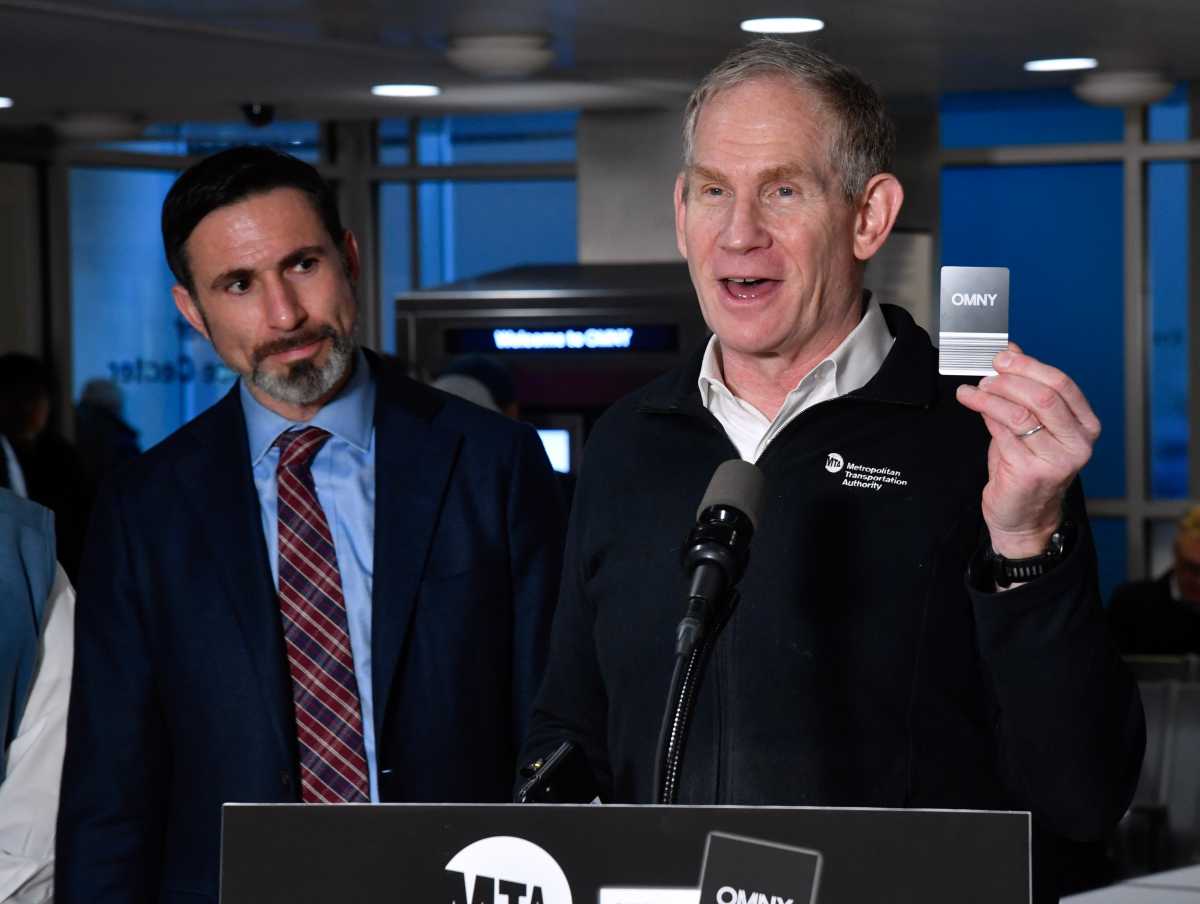
The convenience of being able to pay in multiple ways, including the ease of tapping by phone or card, pleases OMNY users. According to the survey, 26% of survey-takers did not have any OMNY issues.
“Our survey shows that riders are optimistic OMNY can unite the region’s transit systems and make them a more convenient and seamless way to ride,” Lisa Daglian, executive director of PCAC, explained.
The MTA said it will retire the MetroCard by the end of the year, with sales and distribution ending on Dec. 31, to make way for OMNY. The agency started using OMNY in 2019.
MTA dismisses ‘online push poll’
Jessie Lazarus, the MTA’s deputy chief of commercial ventures, explained that the agency has done its own reviews that were more favorable toward OMNY.
“It’s hard to take seriously a tiny online push poll when twice a year for the last three years we’ve asked over 70,000 riders how they feel and tap-and-go crushes MetroCard every time,” she said. “But forget the polls, each day 75% of riders choose the speed, savings, and convenience of tapping to pay.”
Meanwhile, the agency reported last month that a glitch in OMNY software resulted in riders reporting that they were hit with reading failures and payment errors. A month later, MTA Chair and CEO Janno Lieber announced the agency would not raise fares in August as was planned.
However, it will still “in all probability” happen this year, he said.
Daglian, in the meantime, said smart fare incentives for low-income riders and the MTA’s heaviest users “should accompany any fare increase” and transition to OMNY.
“We’re confident that in time, OMNY will live up to its full potential and the right fare incentives will be created, particularly given Governor Hochul’s unwavering focus on affordability,” she said.
Based on rider feedback, PCAC has various recommendations for the MTA. These include updating the OMNY interface so riders can see more information about their accounts such as balance and expiration date, on the payment screen. The group would also like to see a public awareness and information campaign about the system.



